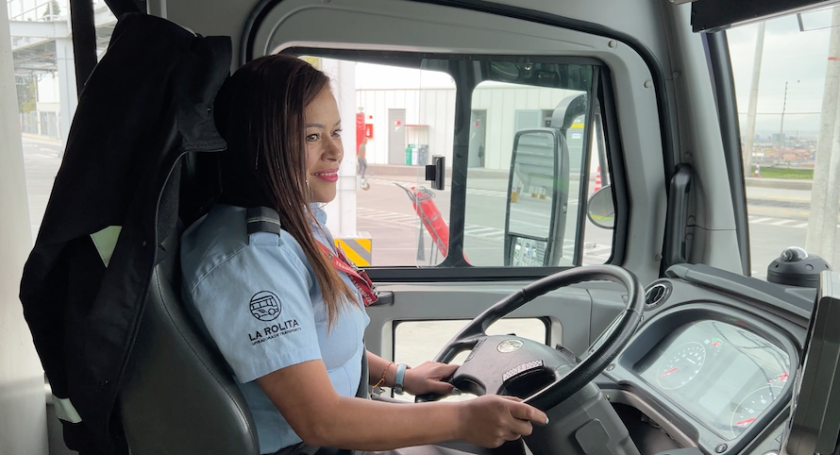
Palm Hills allocates EGP 30 m for backing Egyptian athletes
Palm Hills, Egypt’s leading real estate developer, allocated EGP 30 million for supporting Egyptian athletes under ...

About 11 percent of buses in Colombia are electric. The country’s capital, Bogota, is home to 1,485 electric buses, said María Fernanda Ortiz, manager of TransMillenio, the bus rapid transit system that serves Bogota and Soacha, a neighboring city.
In Latin America, a growing number of cities are embracing electric transport. The region boasts 5,084 e-buses, constituting about 6 percent of its bus fleet, according to E-Bus Radar, an online platform that tracks electric bus use.
The global transport sector is responsible for 15 percent of emissions of carbon dioxide, a potent greenhouse gas that is driving climate change. The industry’s emissions—which total 8.1 gigatons annually—are growing faster than any other sector and are set to double by 2050, largely on the back of increases in the Global South.
Reining in those emissions is considered key to countering climate change. Switching to electric vehicles, promoting wider use of public transportation and better designing cities to require less travel, among other policies, could reduce all transportation emissions by more than 50 percent.
In 2023, Colombia joined a novel project launched by the United Nations Environment Program (UNEP) and the German Federal Ministry for Economic Cooperation and Development. The initiative, which spans six countries, is designed to ensure a gender-inclusive shift to electric transport, creating jobs for women and ensuring public transit meets their needs.
About 479 female bus drivers work for La Rolita, which operates a fleet of 195 buses in Colombia. The company is considered a pioneer for two reasons; it is one of the world’s few all-electric public transport companies and it has made hiring women a priority. Just over 50 percent of La Rolita’s workforce and 60 percent of its drivers are women.
La Rolita is in many ways a model firm in a world struggling with both spiraling greenhouse gas emissions and gender inequality, said observers.
La Rolita’s emphasis on hiring women has proven life changing.
Globally, women hold less than 20 percent of jobs in the transport sector, though Colombia has made strides in that area.
“Gender equality is crucial to advance the environmental dimension of sustainable development,” says Juan Bello, UNEP’s Director for Latin America and the Caribbean. “Sustainable development will only be achieved when everyone has a voice and an opportunity to contribute fully to a greener and fairer world.”
A key part of the UNEP-backed gender-diversity project is to compile information on how accessible transit is to women, their perceptions about safety and the success of gender-related transport policies.
“This data is crucial for early identification and rectification of inequalities,” said Melissa Valencia Duque, a researcher at Colombia’s Pereira Technological University, which is involved in the project. “By focusing on access to services and employment rights, we can foster an industry that grows without conventional gender gaps.”
Palm Hills, Egypt’s leading real estate developer, allocated EGP 30 million for supporting Egyptian athletes under ...
Extreme weather events were the primary drivers in 18 countries where over 77 million people faced ...
Over 100 SDG-aligned projects with a total investment scope of $ 50 billion have been presented during the ...


اترك تعليقا